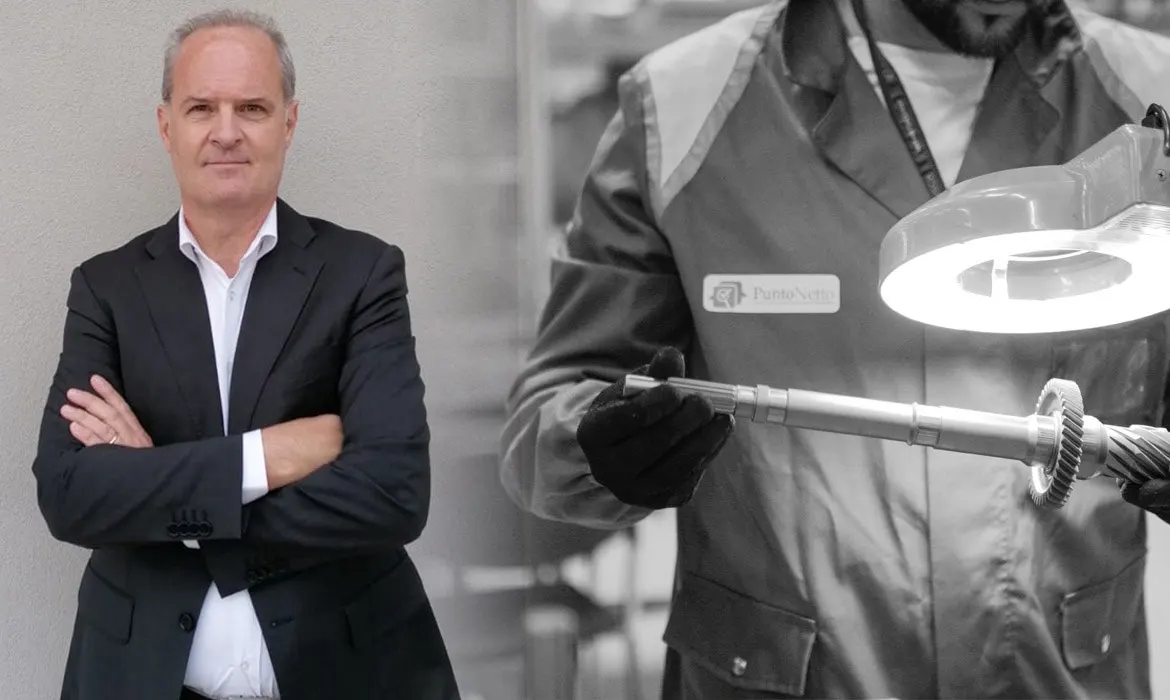News: Silvio Granzotto, a mechanical engineer from Brescia, with over 25 years of experience in the automotive, textile and foundry industries. His career got off to the right start and after a very short trial period, in 1995 Silvio Granzotto became the link between Gnutti Carlo and his American customers' factories in Milwaukee and Cincinnati in the Truck & Off Road sector. In 2000 he moved to Textiles with the role of Production Manager for the Santoni Group. Five years later and Granzotto is Plant Manager at Gnutti Cirillo, a world leader in the hot moulding and machining of brass and other non-ferrous materials. In 2013 he returned to base to embark on a new career path related to Quality at the Gnutti Carlo companies and two years later became Quality Director at Italo Saleri, a leading company in the design, development and production of water pumps and cooling systems for the automotive industry. Over the years, Granzotto has built up a close network of relationships with the world's leading automotive brands, from Ferrari to Aston Martin, BMW to VolksWagen, Daimler to Audi, Porsche to Opel, General Motors to Ford and Psa.
Last April, at the height of the Covid-19 pandemic, Mr Granzotto realised that the time had come to strike out on his own. He wanted to focus on the skills he had acquired in 25 years of work in the trenches and put them at the service of the mechanical industry to improve quality systems in companies. How did this idea come about?
"The idea was born 10 years earlier, when in 2010 I entered the world of consultancy, taking time out of my busy schedule to avoid encroaching on fields that might have links with the companies I worked for. In the world of Industry there were not all these skills but there was already an outline to work on. As I increased my skills in the field of quality systems, I started to receive more and more requests. At that point I realised that I had to make a choice of field. Quality had to remain a filler in my profession or it had to become my main activity. So I decided that the time had come to set up my own business."
You have had the opportunity to approach the big American and German automotive brands in your business. How much quality is there in Italian industry?
"Italian industry is definitely full of quality. But quality in Italy is still not seen as an activity capable of bringing a benefit, of producing added value. In essence, it is still a cost. The big difference I have seen between the approach of the Americans and the Germans and ours is that we are very good at doing things, we can give lessons to everyone. But we are not very good at planning. And planning is everything. Without planning we fall into decay and this is the real cost that Italian industry has to pay. You have to plan and programme more if you really want to do well. You see, in the world of quality, one of the main approaches (also referred to by industry standards) is PDCA, also known as the Deming cycle, where the word "plan" appears at the first step. Without careful planning, it is not possible to move on to the next step, which is "do". Then, of course, there is the "check" which helps us to verify any anomalies in the process and at that point we act with the final step "act". Italian industry should always have these four cardinal points in mind.
Who is the Quality Manager in a company?
"The Quality Manager must first and foremost be the production manager (he smiles). Quality is not a body detached from its context. It is done in production and not in the specific department where there are people in charge of controlling the quality of the processes. If the entire production process is not focused on quality, there is little point in controlling the product so that, sooner or later, some non-conformity may crop up and limit its delivery to the end customer. The Quality Manager is the head of a monitoring and support structure. He ensures that the company's best practices are respected. He ensures that procedures are followed. But every stage of the industrial process must be dedicated to quality. That is why I believe it is essential to invest in 'good' quality".
THE CONCEPT OF QUALITY IN THE COMPANY
Is there a good and a bad quality in a company?
"Good quality in a company is preventive quality, i.e. quality that manages to prevent non-conformities from arising. Quality is often perceived as a cost when, in fact, it is the non-conformity of a product placed on the market that generates the greatest diseconomies. Quality is an added value. It certainly has a cost, as does having sales staff travelling around the country or being able to count on a host of good designers. I need to make sure that that quality on the payroll helps me to do prevention and not 'firefighting', to prevent the shambles of internal and external non-conformity. Quality must work on prevention in order to reach a universally higher level, which is the level of corporate quality".
How did you come into contact with Punto Netto?
"Since we needed to carry out sorting activities at the plants, we had taken the decision to outsource quality control activities to contain non-conformities and to have components already selected and certified leave the plants. And choosing Punto Netto of Mr Gaetano Griso to set up an outsourcing activity for sortings and reinforced controls in the absence of anomalies was simple. The company from Irpinia has for years been a consolidated reality in the Brescia industrial area with recognised skills and a team deeply rooted in the territory. In short, a company that knows its stuff in terms of quality and non-destructive testing. With quality as the lowest common denominator, we immediately hit it off".
APRIL SEES THE LAUNCH OF A "SOCIAL" FORMAT TO TALK ABOUT QUALITY
In the next few weeks the paths of Punto Netto and yours will cross again for a partnership project that will be condensed into a format for social channels with an evocative name: "Punto alla Qualità". Would you like to explain what this is all about?
"With this format we want to reach those dark areas in which some entrepreneurs are still bogged down, seeing quality as a cost and not as an added value. We will talk about quality in industrial processes, of course, and with appropriate tools and consolidated methodologies we will try to make people understand that this concept can be a picklock to open doors behind which cost reduction, waste reduction and improved performance in terms of process and product are hidden. All this will be done in a fresh, streamlined and immediate format that we hope will appeal not only to our followers but also to many other friends who want to broaden their knowledge. We will talk about problem solving and 8D, PPAP and FMEA, Early Production Containment and much more. But don't let me spoil it for you. Follow us and you won't regret it."



 Among the many services provided by Equity Point stand out the non-destructive testing, with Penetrating liquids, Ultrasound and Magnetic Particle.
Among the many services provided by Equity Point stand out the non-destructive testing, with Penetrating liquids, Ultrasound and Magnetic Particle.




